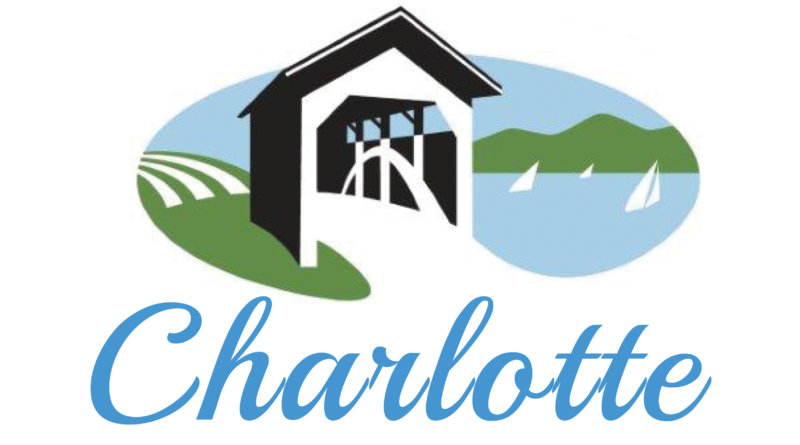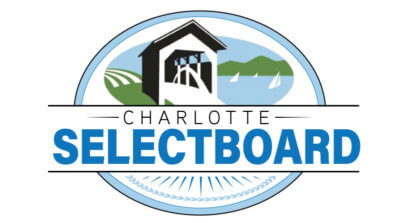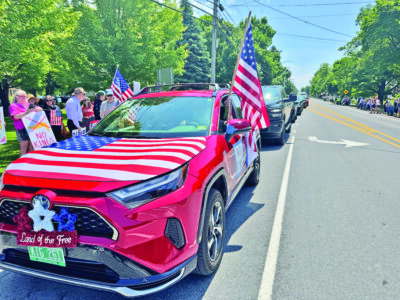Commentary: Selectboard meeting demonstrates need for town manager
At the outset of the June 26 selectboard meeting, the selectboard agreed to chair Jim Faulkner’s request to change the agenda by adding an update concerning the transition of the Charlotte Volunteer Fire and Rescue Service to a municipal department.
Although changes to the agenda are at the discretion of the selectboard, it was surprising that such an important issue to Charlotters was not tabled by the selectboard for a future meeting to accommodate input from the public. It begs the question as to why this wasn’t put on a future agenda.
I contacted Jim Faulkner about this and he emailed me and said, “The selectboard is well aware of the importance of the transition of Charlotte Volunteer Fire and Rescue Service. The board has simply put the transition on pause due to the significant other issues facing the town at this time. We are also approaching the next budget discussions and wanted to make sure that Charlotte Volunteer Fire and Rescue Service had the opportunity to present their budget as they have done in the past. The selectboard will continue the discussions once [they] have the replacement for Dean Bloch [and] the next budget has been finalized. This is an important issue and needs a through [sic] analysis.”
At this meeting, Faulkner said that the transition of Charlotte Volunteer Fire and Rescue Service be put on pause because the selectboard has “lots of issues in front them” and added that the town manager option is consuming a lot of their time. He said, “If we didn’t have the town manager/town administrator in front of us, we would probably continue to work on the MOA” (the town’s memorandum of agreement with Charlotte Volunteer Fire and Rescue Service). He proposed getting back on track with Charlotte Volunteer Fire and Rescue Service at the end of February 2024. The selectboard also agreed to provide some kind of an update in mid-August.
Bear in mind that Charlotte Volunteer Fire and Rescue Service expenses represent 22.9 percent ($966,806) of total town expenses for the current year. This is a considerable fiduciary responsibility of the town.
During the half-hour discussion about Charlotte Volunteer Fire and Rescue Service, Jim Faulkner and Frank Tenney said repeatedly they did not have the information necessary to move forward with the Charlotte Volunteer Fire and Rescue Service transition. In fact, the word “information” was uttered at least 30 times. “Getting the information needed,” “getting the right information,” “knowing what information is needed” and “it’s hard to get” were some of the phrases repeated during the discussion. At one point, Faulkner said, “We’ve tried all kinds of angles to get the information, but can’t seem to get it.”
Faulkner said that the lack of information was not the fault of Dan Lyons, the consultant from Gallagher, Flynn and Co. contracted by the selectboard to provide services in the Charlotte Volunteer Fire and Rescue Service transition effort. He began in February 2023. As of July 7, the town has paid Gallagher, Flynn, and Co. $14,175.
 I contacted John Snow, Charlotte Volunteer Fire and Rescue Service corporate board president, and asked him if he knew about missing information. He said, “I have confirmed with Dan that he had all the information he needed from Charlotte Volunteer Fire and Rescue Service. To do his assignment he also needed quite a bit of information from the town and various third parties. I do not know where that stands.”
I contacted John Snow, Charlotte Volunteer Fire and Rescue Service corporate board president, and asked him if he knew about missing information. He said, “I have confirmed with Dan that he had all the information he needed from Charlotte Volunteer Fire and Rescue Service. To do his assignment he also needed quite a bit of information from the town and various third parties. I do not know where that stands.”
So what information is lacking?
It was evident at the meeting that, what appeared to be at the outset an agreement by the selectboard to transition Charlotte Volunteer Fire and Rescue Service to a municipal entity (also agreed to by Charlotte Volunteer Fire and Rescue Service), was never voted on by the selectboard, nor was a letter of intent written. At this meeting there was no consensus by the selectboard as to whether Charlotte Volunteer Fire and Rescue Service should continue the transition to a municipal department, abandon it entirely, leave the current memorandum of agreement in place or amend the agreement.
Later in the meeting, while discussing a different agenda item, Dean Bloch, town administrator, spoke to all the issues in front of the selectboard: compensation, town garage, town garage solar, traffic calming, cannabis land-use regulations, road paving, website update and affordable housing.
Frank Tenney, vice chair, said there are “lots of issues in front of the selectboard now.”
Jim Faulkner repeatedly made it clear that in his opinion there are a lot of issues in front of the selectboard right now and that the fact that the town manager option “popped up” is preventing the selectboard from continuing with the Charlotte Volunteer Fire and Rescue Service transition.
Having watched the recording of this meeting, it was clear that the selectboard is often unable to address significant policy issues in a timely manner. They stated they are too busy and over-burdened and are therefore compromised addressing significant policy issues at hand.
On July 18, Lee Krohn, hired by the selectboard to analyze the pros and cons of a town manager versus a town administrator will present his findings. Equally critical is the need for the selectboard to take stock of their tenure to date and how they plan to meet the many challenges of the future.
A candid review of the June 26 meeting would be worthy of their time. It points to the need of a town manager.
(Peter Joslin is a former chair of the planning commission and a member of The Charlotte News board of directors. The opinions expressed here are his own and not necessarily those of the board.)
Related Stories
Popular Stories
If you enjoy The Charlotte News, please consider making a donation. Your gift will help us produce more stories like this. The majority of our budget comes from charitable contributions. Your gift helps sustain The Charlotte News, keeping it a free service for everyone in town. Thank you.
Andrew Zehner, Board Chair







